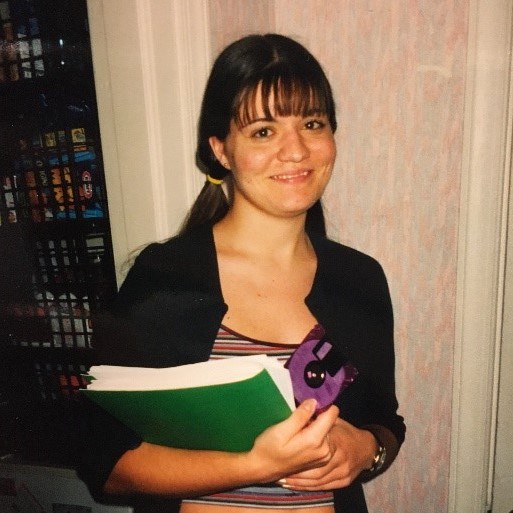I've had a lot of opportunities for reflection recently, given the 20-year anniversary of NSSE and my own 15-year college reunion. My first encounter with NSSE was in 2004 as a respondent, during my senior year at Hanover College. One day on my way back from class, I stopped at the Campus Center to check my mailbox and pulled out the NSSE survey (it was the olden days, so it was on actual paper in an actual mailbox). Back in my room, I proceeded to fill it out immediately. I even got out all of my syllabi when I got to the questions about number of pages and writing assignments, in order to calculate a fully accurate response. I'd like to claim that this was because I was such a conscientious survey respondent, but in all honesty, I was probably just procrastinating work on something else. Then, I dropped the completed form into the outgoing mail and let the survey research gods take it from there.
The next time I came across NSSE was a few years later, during my doctoral coursework at Ball State University. I was also getting a certificate in Institutional Research, and one day in the "Introduction to Institutional Research" class the professor brought in Ball State's most recent Institutional Report (aka the infamous NSSE Binder) for everyone to look through. As soon as I saw the copy of the survey at the front, I remembered it. "Hey, I took this when I was a senior!" I exclaimed (although no one else had, and was therefore not as excited as I was about it).
Then in the spring of 2009, my graduation was looming and I was on the job market. Given the terrible state of the economy, I was putting my Institutional Research certificate to good use and looking for some more nontraditional academic positions. Once I saw the posting for a Research Scientist at the IU Center for Postsecondary Research, I immediately applied. When I came to Bloomington for the interview, everyone loved my story about being a NSSE respondent (although, we will just assume that my other skills and qualifications are why I actually got the job).
So you may be wondering, do my NSSE responses really reflect my undergraduate experience? For the most part, I would have to agree that the NSSE content echoes some extremely important elements of my time in college. At a liberal arts college with an enrollment around 1,100, there were always small classes, with a lot of student participation and interaction with faculty. People definitely had to show up to class (because the professors would notice if a person was skipping, and might see them walking around campus later that day), and everyone had to contribute to the conversation. The heavy writing requirements, even from the very first courses I took, were excellent preparation for all of the writing I would do in graduate school. I had opportunities to take extremely challenging interdisciplinary courses, including one titled "Eurasia" that was three semesters long and smooshed together history, philosophy, religion, art, literature, and science in Europe and Asia (and has provided numerous correct answers when I play along with Jeopardy! at home).
NSSE also asks about "high-impact practices" and I would concur that these were some of the most memorable and defining moments of my undergraduate education. I was able to go on a month-long study abroad class to Japan during May term in 2003, and I was a research assistant for a professor in my department and we presented some of this work at a professional conference. Furthermore, all students were required to take comprehensive exams and complete a senior thesis (more preparation for the intense study that would await me during graduate school). Of course, there were also some important life lessons I learned in college NOT captured by NSSE (like don't go to an amusement park the day after a night out at the bars, and how many days in a row can I wear the same pair of jeans without washing them). But all in all, reflecting back on my responses to the NSSE items, the survey really does capture several compelling aspects of my college experience, amounting to much more than just transcripts and a diploma.

Holding the 3.5" floppy disk containing my senior thesis

With my roommates at a sorority event

Graduation with my senior thesis advisor (and current NSSE CPM for Hanover!) and research assistant supervisor


